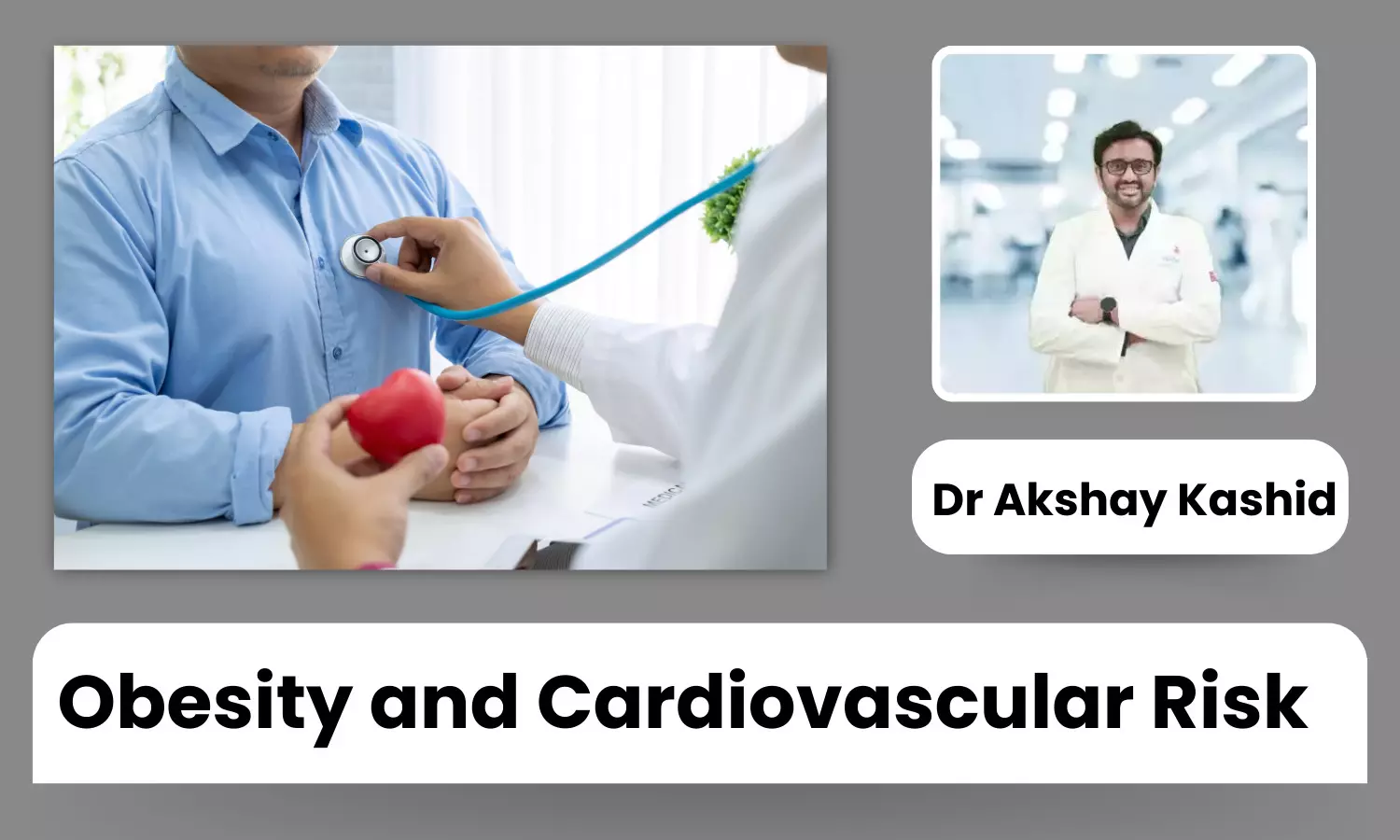Obesity and Cardiovascular Risk: Prevention and Intervention Strategies - Dr Akshay Kashid

Obesity, an extensive health condition known as excess body fat, is a major risk factor for cardiovascular disease (CVD). Obesity is linked with diseases such as hypertension, insulin resistance, dyslipidemia, and thrombosis, all of which raise the risk of cardiovascular disease and mortality.
Also, the pro-inflammatory and pro-thrombotic routes triggered by excess adipose tissue appear to increase cardiovascular risk separately. As worldwide obesity rates rise, it becomes more important to understand the link between obesity and cardiovascular risk, as well as adopt effective preventative and intervention techniques, to improve general well-being.
Connection Between Obesity and Cardiovascular Risk
Obesity increases cardiovascular risk through a variety of mechanisms. Excess body fat, particularly around the abdomen, is linked to high blood pressure, cholesterol, and blood sugar levels. These factors put pressure on the heart and blood vessels, causing disorders such as atherosclerosis, in which arteries constrict and harden due to plaque development.
Also, obesity is often linked with metabolic syndrome, a group of diseases that include hypertension, high blood sugar, and abnormal cholesterol levels, all of which considerably increase cardiovascular risk. Chronic obesity-related inflammation exacerbates this risk by weakening blood vessel walls and encouraging plaque development.
Preventive Strategies
- Lifestyle Changes: Obesity prevention requires an integrated strategy, which begins with lifestyle changes.
- Health Diet: A healthy diet high in fruits, vegetables, whole grains, and lean meats is necessary. Limiting the intake of processed meals, sugary beverages, and extra fats will help one to maintain a healthy weight.
- Exercise Regularly: Regular physical activity, such as brisk walking, cycling, or swimming, is essential for burning calories and improving cardiovascular health.
Intervention Strategies
Interventions for obese people include everything from lifestyle changes to medical treatments.
- Behavioural treatment: It focuses on changing food habits and physical activity patterns, can be the first form of treatment.
- Structured weight loss: It includes food, exercise, and counselling have been shown to reduce weight and cardiovascular risk.
- Medical Treatments: When lifestyle changes are insufficient, surgeries like bariatric or weight loss surgeries can be used for obese patients. Medications can aid with appetite suppression and fat absorption, while surgeries such as gastric bypass and sleeve gastrectomy can result in significant and long-term weight loss. These treatments not only help to lose weight but also improve metabolic health, lowering cardiovascular risk.
Obesity is a complex condition that increases the risk of cardiovascular disease and death. Specific therapies require an integrated strategy cardiovascular disease outcomes improve with comprehensive lifestyle modifications, as well as medicinal and surgical treatments.
Cardiac rehabilitation is important in Cardiovascular patients to better regulate arterial hypertension, dyslipidemia, and glycaemia, as well as to maintain weight loss, good diet, psychological well-being, and exercise ability.


